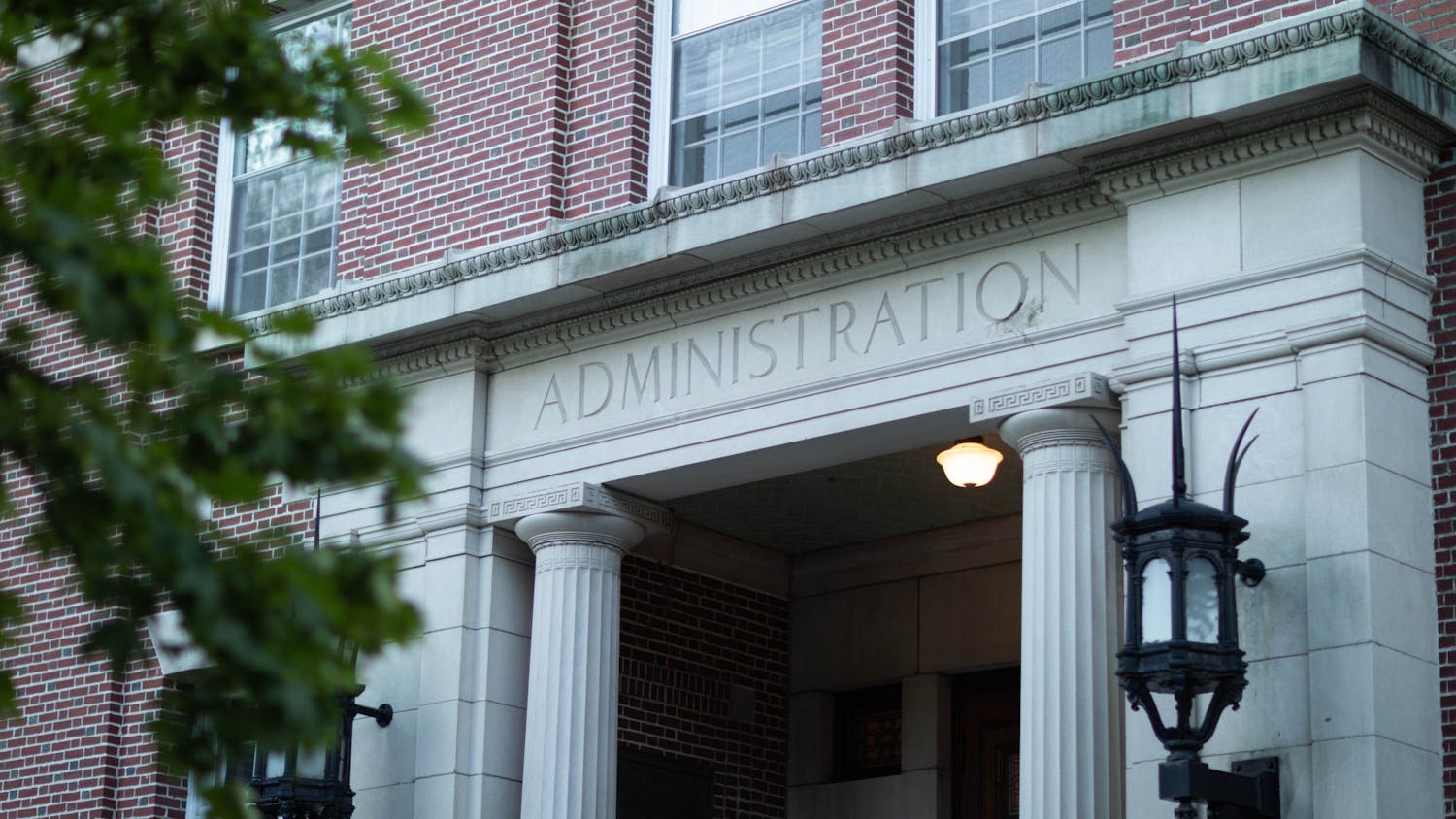At other Ivy League schools, relations between the administration and campus Greek systems have been less charged than at Dartmouth since the announcement of the Student Life Initiative in 1999.
At both the University of Pennsylvania and Cornell, leaders of Greek organizations work closely with the Office of Fraternity and Sorority Affairs. However, while about 15 percent of Princeton's student body belongs to Greek organizations, such houses are not officially recognized by the university.
Given the number of alcohol and other violations by University of Pennsylvania fraternities investigated within the past year, it might look like the the Greek system there has been experiencing some tension with the administration.
However, administrators and leaders of Greek organizations say this is not the case.
Michelle Goldfarb of Penn's Office of Student Affairs said, "I think that Penn and Penn's administration actually make a remarkable effort to work closely and understandingly with the Greek system. I would not say that there's a concerted effort on the part of the administration to crack down on the Greek system as a system."
According to Director of Penn's Office of Fraternity and Sorority Affairs Scott Reikofski, no formal initiatives to radically change the Greek system at Penn have been proposed. Then again, he said, Penn has not experienced problems with its Greek system that are "quite as blatant or concerning as have been seen at some other institutions."
Nevertheless, each year, several fraternities are subjected to disciplinary action, said Goldfarb. This typically happens during the spring, which is pledge season.
Last year, the office investigated Psi Upsilon, Kappa Sigma and Zeta Beta Tau for various violations of the university's alcohol policies and the Code of Student Conduct.
Currently, Alpha Chi Rho is under investigation for a possible violation of Penn's alcohol policy. Goldfarb declined to comment on what is still an open investigation, but Jason Belinkie, president of Alpha Chi Rho, said that he is unaware of the fraternity having committed any infractions.
Belinkie stressed that he doesn't know the details of the investigation and that he doubts that Alpha Chi Rho will be subjected to disciplinary action.
"The administration is always willing to talk with us and always willing to listen to our side of the story. They're not going to punish us without getting our take on what is going on," he said.
Penn's Office of Student Conduct undertakes such investigations cautiously. Goldfarb said, "When we undertake an investigation, it's generally because somebody has required medical treatment as a result of having had too much to drink at a party, or because there's been some kind of destructive behavior that caused police to arrive. It would have to be something bigger and more egregious than the usual alcohol or party registration glitch."
She reiterated, "The administration doesn't go out looking for fraternities to mess up so that we can throw them off-campus."
Although Penn recently revised its alcohol policy, both Reikofski and Goldfarb denied that a stricter policy has resulted in increased disciplinary actions toward Greek organizations. According to Conor Daly, president of Penn's Interfraternity Council, the 1999 death of recent Penn alumnus Michael Tobin precipitated the new alcohol policy.
Daly added, "I don't think the University is cracking down at all, but they're not too lenient either. Currently three frats are on probation, but I think they probably deserve to be. The IFC holds on to the belief that you're here to get an education and nothing should interfere with that."
At Cornell, disciplinary action for alcohol code violations is handled by the students under the general guidance of the Office of Fraternity and Sorority Affairs.
According to Suzy Nelson of Cornell's Office of Fraternity and Sorority affairs, the 40-60 annual judicial violations are heard by the Interfraternity Council and the Pan-Hellenic Council.
Nelson added that she strongly believes in self-governance for the Greek system since it "promotes moral development and gets people to think about their own actions and the standards of the community."
Although Cornell is not trying to target fraternities for disciplinary infractions, the University recently revised its Campus Code of Conduct to contain a specific ban on hazing and is currently conducting a massive reexamination of the alcohol policy, Nelson said.
Jason Conn, president of the Interfraternity Council at Cornell, praised Office of Fraternity and Sorority Affairs for their supportiveness of the IFC and of the Greek system in general.
Conn pointed out that because the Greek system at Cornell is so large and prominent, "the administration in many ways has no choice but to work with us."
He added that many prominent administrators are themselves Greek alumni of Cornell. He also noted that Greek alumni devote large amounts of money to the college.
"Usually, it's not the administration coming in and taking disciplinary action against fraternities -- it's usually the national chapter or alumni who impose certain standards," Conn said.
Princeton is an example of an Ivy League school where the Greek system plays a much less prominent role. While they do exist, fraternities and sororities have not been officially recognized since 1855.
The trustees reaffirmed this official position toward the Greek system in 1983, but ended the official policy prohibiting students from joining Greek organizations.
Princeton Dean of Undergraduate Affairs Kathleen Deignan explained that this policy partially stems from a desire not to undermine the position of Princeton's eating clubs system.
Nevertheless, she estimated that about 700 to 800 Princeton students, or approximately 15 percent of the student body, are members of nationally affiliated Greek organizations.
Members of Greek organizations at Princeton do not reside in fraternity or sorority houses the way they do at many other schools. As a result, Greek chapters play less of a role in hosting social events than do the eating clubs, to which about 90 percent of the student body belongs.
Because the University does not officially recognize Greek organizations, it does not have specific policies in place to regulate how Greek life is conducted. "University regulations about the use and service of alcohol apply to all our students," whether in eating clubs or Greek chapters, Deignan said.
She added that Princeton expects all its students to abide by the New Jersey state liquor laws, which set the legal drinking age at 21.
Deignan admitted that it is can be difficult to enforce campus alcohol policy for events that take place in private residences off campus.
Campus security does not have jurisdiction over the eating clubs, which are located off campus.



